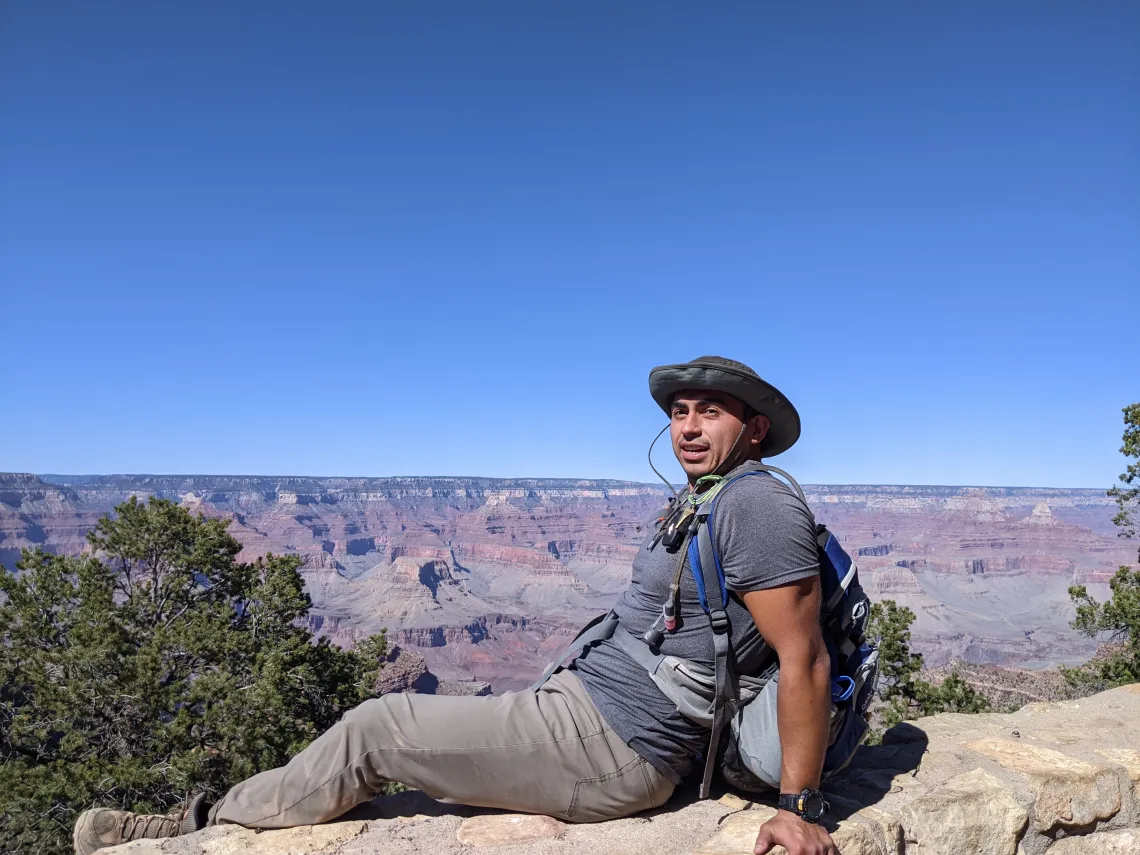Scientist Spotlight: Cesar Medina

At the University of Arizona, we believe in tackling the greatest global challenges of today and tomorrow through action-oriented, community-based inclusive excellence. We value the diversity and commitment to equity of every Wildcat, every day – practicing both inclusion and compassion in every interaction from every office, division, and college. Our institutional strength is fueled by the rich cultural tapestry made up of every member of our campus community that brings their true, authentic selves to thrive, excel, and achieve.
Cesar Medina is a Ph.D. candidate within UArizona’s Neuroscience Graduate Interdisciplinary Programs. The program is designed to provide students with the knowledge and tools that they will need to embark on careers as educators and researchers in the field of neuroscience. Students participate in designing their own individually tailored programs that provide a thorough base of knowledge in the many facets of neuroscience as well as depth in chosen areas of specialization.
Cesar has demonstrated a continued commitment to supporting diversity in the College of Science. He was nominated for the College’s new Scientist Spotlight series due to his commitment to inclusion, mentoring, and his service to his department and our community. This series highlights staff, faculty, postdoctoral fellows, and researchers throughout the College and the tremendous work they are doing to advance the College alongside their peers.
College of Science: How did you end up in the sciences?
Cesar: I enrolled at the University of Arizona as a pre-medicine student to pursue a career as a physician. I learned about the new Neuroscience and Cognitive Science program and was drawn to it immediately. However, my first year did not go as planned as I struggled in my core science courses, which left me disillusioned and wondering what other options remained. I couldn't let my course grades define me though, so I persevered and retook the core courses I failed in previously. Eventually, I found my way back to science after I renewed my confidence.
COS: What would you be doing if you weren’t a scientist?
Cesar: I admire storytellers' ability to captivate minds, so if I were not a scientist, I would be a writer and share my Chincanx experience.
COS: How did you decide on your particular field of study?
Cesar: I pursued Neuroscience because I was interested in the role of early life stress on adulthood outcomes for learning, memory, and mental health. Neuroscience seemed like a natural fit for this interest. This interest stemmed from my life as a Chicanx American and the lived experiences of my family.
COS: How do you unwind after a grant deadline?
Cesar: I love the outdoors and to spend time with friends. When I need a break, I retreat to the forest, desert, or mountains for some healing.
COS: How does your path shape you as a scientist?
Cesar: The most important thing to me as a scientist is centering lived experience and humans in my work. Personally, I feel that scientists have an obligation to ensure the well-being of others. This stems from my experience as a child of immigrants. My family therefore has helped me shape this outlook.

